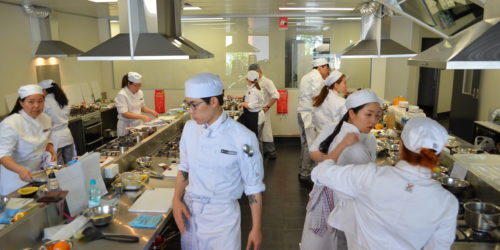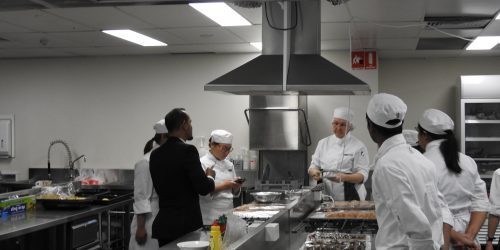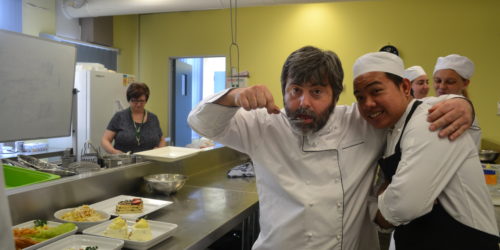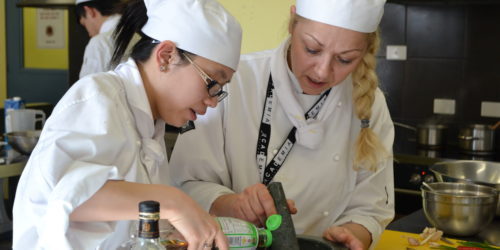Why Hands-On Training In Commercial Cookery Is Important
While you will learn many skills in the classroom that can help further your career in the hospitality industry, hands-on training is also needed so mistakes can be made and corrected, and so you can get a sense of what it will be like to work in a full functioning kitchen after graduation.
Although at school you will learn the theory and practical application of cooking, it is very important to back this up with actual industry experience. If you are serious about achieving your goals in the hospitality industry you must be able to demonstrate that you know how to work under pressure, how to improvise in the workplace and also have the ability to work as a team member.
Industry experience is essential if you wish to obtain the goals of a head chef, sous chef or opening your own business, schooling will give you the foundations for this.
Cooking is a rewarding profession and one that is in demand worldwide. It is your decision as to how you use the skills you obtain and how far you wish to take your career.
SCHEDULE OF TRAINING
Students will spend on average one day in the classroom and two days in either demonstration or commercial kitchens. This allows students to learn theories in cookery and be able to try them out in a kitchen environment.
TYPES OF TRAINING OFFERED
Even though you will spend many hours preparing food, desserts, and drinks in preparation for your future career, you will also have to manage small groups, create budgets, and prepare menus. These are skills that are necessary if you want to manage a kitchen or if you want to start your own catering business or restaurant.
All hands-on training is conducted in demonstration and commercial kitchens that are close to campus. Students are graded on their performance, skill level, and their ability to overcome many obstacles that can be found in most commercial kitchens.
As students complete different tasks, or assessments, they will be able to progress through the program.
LEARNING HOW TO WORK WITH OTHERS
Since being able to work with others is an important component to any position in a commercial kitchen, you will learn management skills that include the proper way to talk to others, how to communicate with vendors over the phone and in person, and how to coordinate serving times with the dining room staff.
Implementing operational plans is important so that each member of the staff understands their role. Since timing is everything in a kitchen, learning how to time courses, prepare food in advance, and maintain stock are all skills that can help you improve customer service and keep to a specific schedule.
Keeping a positive attitude will help you succeed when applying what you have learned in the classroom in the kitchen. While student assessments should be taken seriously, working in the kitchen is your opportunity to try new ingredients, create new dishes, and experiment with foods you may have never worked with before.






